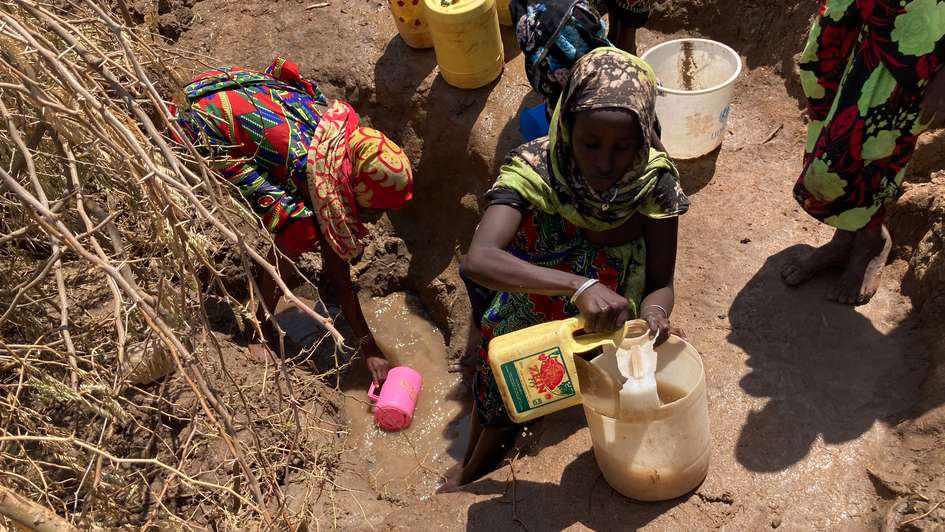One in five persons don’t have enough water in drought-stricken East Africa

- Up to 90% of water boreholes in parts of Somalia, Northern Kenya and Southern Ethiopia have entirely dried up
One in five people in drought-stricken East Africa – a total of 33.5 million people across Ethiopia, Kenya and Somalia – don’t have enough safe drinking water. Failed rain is predicted to persist for a sixth consecutive season by May, making this the longest drought on record.
In some areas in Ethiopia, northern Kenya and Somalia, the cost of water hasskyrocketed by 400 percent since January 2021, making remaining water out of reach for the 22.7 million people already facing acute hunger. In northern Kenya, 95% of water sources have dried up in pastoral areas like Marsabit and Turkana causing water prices to rise.
“The hungriest people in the region are also the thirstiest. People have depleted their last penny as they lost their crops and animals. They now have to pay vendors who continuously hike water prices”, said Fati N’Zi-Hassane, Oxfam in Africa Director.
The over two years drought has already killed more than 13 million livestock, dried up thousands of hectares of crops and driven 1.75 million people from their homes in search of water and food.
In Somalia’s Bay region, where 76,000 people are already facing a famine like conditions, water prices have more than doubled. Families are being forced to make hard choices like selling off what little essential possessions they have left or moving in search of water.
“Hundreds of thousands of people are now relying on emergency water trucking, orun protected wells which are unsafe and contaminated. Without clean water, people are at risk of contracting easily preventable diseases, such as acute watery diarrhoea and cholera”, added N’Zi-Hassane.
26-year-old Khadra Omar, a resident from Mogadishu said:
“People are now risking their lives consuming dirty water as a result of the drought.” “The past droughts were not this bad, we were able to get water but in this one, it has been impossible to get water, everything has dried up and the water that is available is very expensive for us to afford, people are now dying because of thirst” added Khadra.
While famine has so far been averted in countries like Somalia, mostly due to an increase in humanitarian response – only 20 percent of the UN $7 billion appeal for Ethiopia, Kenya and Somalia has been funded to date, which will derail efforts to help millions of people on the brink.
“The world should not turn its back on East Africa. Without an urgent and major increase in aid, many more people will die of hunger and thirst.”
“The worsening hunger crisis in East Africa is a harsh reminder that we also need long-term solutions beyond immediate humanitarian relief, to help people cope with
the recurrent shocks. National governments must lead that change by investing in social protection, water infrastructure and supporting food producers,” added N’ZiHassane







